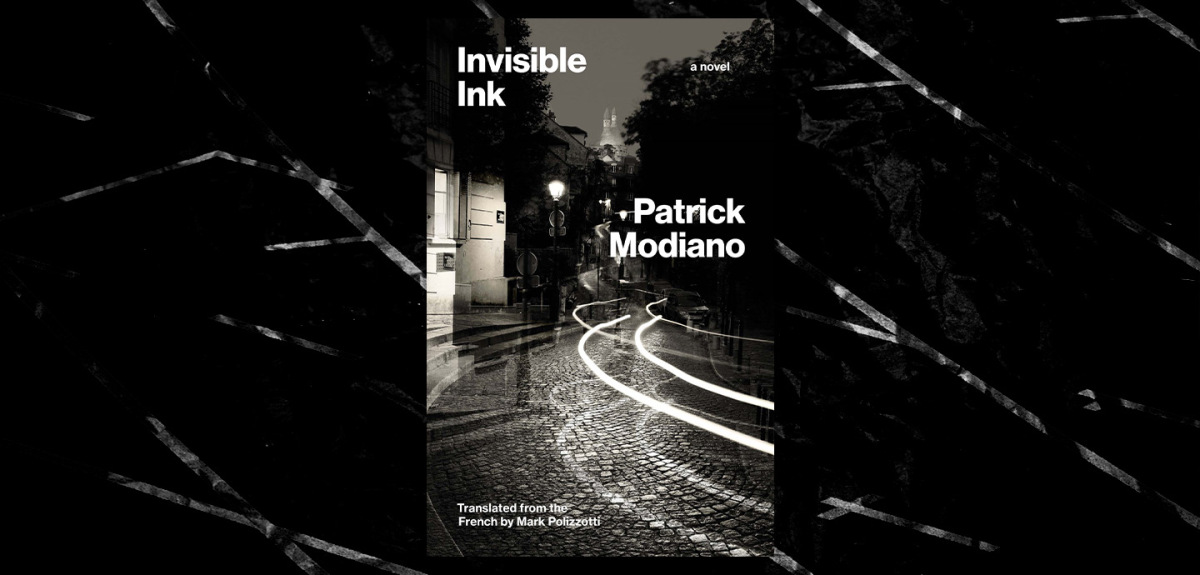[ad_1]
When the great Patrick Modiano says he is writing a detective story, rest assured it won’t be a Sherlock-esque exhibition of armchair deductions or Poirot-like psychoanalysis of a criminal. Most likely, there won’t even be a crime.
Jean Eyben, the narrator of Modiano’s Invisible Ink, is barely a detective. He really only spent a few months working for the Hutte Detective Agency. His first case was the disappearance of a certain Noëlle Lefebre, whom no one in Paris seems to know anything about. The few leads he follows don’t immediately bear fruit and he never solves the case. On his last day at the agency, he sneakily takes the notes he had on Noëlle with him as a souvenir.
Thirty years later, Jean hasn’t forgotten about Noëlle. Every couple of years or so, something he sees in the streets of Paris or a chance encounter with an old friend takes him back to his notes on Noëlle. He continues chasing doggedly, one sketchy witness to another. The witnesses reveal a muddled web of people Noëlle is supposed to have known, but they don’t know enough to piece together her identity. It is a mystery to Jean why this case has an inexplicable pull on him and he is forced to search the crevasses of his own memory for answers.
Like his detective, Modiano is obsessed with memory and forgetting. He has written more than a dozen books on this topic. Some say Modiano writes the same book over and over and in fact, he admits it himself. The general premise goes like this: a woman is missing and a man has to go searching for her. The search raises even more questions and he rummages into his recollections, unaware of the tricks his head is playing on him. These crazed searches often happen in Paris, the city Modiano’s loves writing about. By the end of Invisible Ink, the 15th arrondissement, the Rue de la Convention, and the Lancel storefront at Place l’Opera could very well leave a permanent etch on a reader’s mind.
Modiano’s stories almost exclusively unfold in France, especially Paris. It is perhaps one of the reasons he isn’t widely read in America. When Modiano won the Nobel Prize in 2014, only a few books by him had been translated to English. His first three books, now grouped as The Occupation Trilogy, were provocative takes on the German occupation of France and immediately launched him into literary stardom. More recently, he has been writing about memories and illusions—the mysteries of the mind. It is hard to resist comparing Modiano to Marcel Proust. It is even harder when his first novel’s protagonist is so obsessed with becoming like Proust.
Invisible Ink is an exposition on how memories evolve with time. There is the process of forgetting by which time makes things cloudier and scattered. This is very natural. We all forget things. Modiano is more interested in the opposite process by which forgotten memories suddenly resurface or become clearer—much like how sand dunes in a desert erode to expose buried tombs. Jean Eyben discovers how certain details about Noëlle’s case suddenly emerge in his mind. He uncovers connections between Noëlle and his own life. Perhaps that explains the pull her case has on him. Had he ever met Noëlle himself? Also, had her name always been Noëlle?
The details he salvages, however, aren’t enough to solve his original puzzle. Eyben’s narrative abruptly terminates near the end, and we are transported to Noëlle’s world. We learn that she has been running away and has found a blissful escape in Rome, the city where one learns to forget oneself. A prodding visitor to her shop forces her to revisit her own past. Images of her life before Rome slowly come back to her like old pictures being dusted. The end of the novel, she is scared of forgetting and being forgotten and she vows to tell this new friend everything.
Invisible Ink is one of those books you must read twice:the first time to hear about Jean Eyben’s search for Noëlle and the second time to see how Modiano plays with Eyben’s memory—how he leaves breadcrumbs that lead Eyben to epiphanies. There is also a beautiful refrain that connects Noëlle’s life in Paris with her new life in Rome—but instead of Proust’s Vinteuil Sonata, this time, it is a verse by Paul Verlaine.
Modiano’s novellas tend to have an orchestral vibe when read together. This translation of Invisible Ink could be a perfect opportunity to follow, albeit in reverse, a brilliant odyssey in the mysteries of memory.

FICTION
Invisible Ink
By Patrick Modiano
Yale University Press
Published October 27, 2020

[ad_2]
Source link
